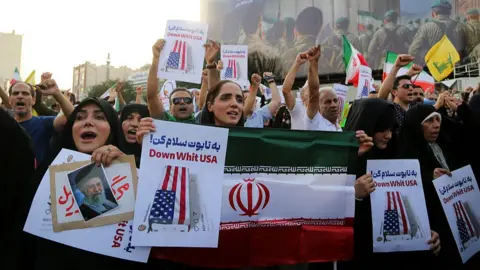BBC bias Gaza review reveals serious breaches in Gaza documentary
A recent internal review has found that the BBC bias Gaza review uncovered multiple editorial failures in the production of the documentary “Gaza: How to Survive a War Zone.” Among the most controversial findings was the failure to disclose that the narrator of the film was the son of a Hamas official, raising serious concerns about impartiality and journalistic integrity.
The BBC bias Gaza review highlights how the corporation failed to maintain its own editorial guidelines when it came to transparency and neutrality. The findings have sparked a heated debate about media ethics, especially in coverage involving politically sensitive topics like the Israel-Palestine conflict.
What the BBC bias Gaza review uncovered
According to the BBC bias Gaza review, the documentary was found to have violated several key editorial guidelines. One of the most serious breaches was the failure to disclose the narrator’s personal connection to Hamas. The narrator, whose father held a senior position in the group, played a central role in shaping the tone and perspective of the film.
This omission was particularly significant given the BBC’s strict editorial policy requiring transparency about potential conflicts of interest. The BBC bias Gaza review concluded that the lack of disclosure could have influenced the audience’s perception of the documentary’s neutrality.
The review also found that the documentary failed to provide sufficient context for certain events, potentially giving a one-sided portrayal of the situation in Gaza. This has led to accusations of bias and a failure to uphold the BBC’s commitment to balanced reporting.
Editorial breaches and their implications
The BBC bias Gaza review outlined several specific breaches of the corporation’s editorial guidelines:
- Lack of transparency regarding the narrator’s background.
- Potentially misleading portrayal of conflict events.
- Inadequate representation of opposing viewpoints.
These findings have prompted calls for greater accountability within the BBC’s newsroom. Many media watchdogs and journalists have emphasized the importance of maintaining editorial independence and transparency, especially in coverage of sensitive geopolitical issues.
Public and political reactions to the BBC bias Gaza review
Since the BBC bias Gaza review was made public, reactions have been mixed. Some have praised the corporation for acknowledging its mistakes and taking steps to correct them. Others, however, have criticized the BBC for what they see as a pattern of bias in its coverage of the Middle East.
Politicians from both sides of the conflict have weighed in, with some accusing the BBC of favoring one side over the other. Meanwhile, media watchdog organizations have called for a more thorough investigation into how editorial decisions are made within the BBC’s international news division.
On social media, the BBC bias Gaza review has become a trending topic, with users sharing clips, commentary, and personal reactions. Hashtags like #BBCBias and #GazaReview have gained traction, reflecting the intensity of the debate surrounding the documentary.
What this means for the BBC’s credibility
The BBC bias Gaza review raises important questions about the future of the organization’s reputation for impartiality. While the BBC remains one of the world’s most trusted news sources, incidents like this can damage public trust, especially among international audiences.
In response, the BBC has stated that it is committed to learning from this incident and improving its editorial oversight. However, many observers believe that restoring full confidence will require more than just internal reviews — it will require visible changes in how stories are produced and reviewed.
Related: Media bias and documentary ethics
If you’re interested in how other media outlets handle bias and ethics in documentary filmmaking, check out our article on Media Bias and Documentary Ethics. This piece explores how different news organizations approach impartiality and transparency in politically sensitive reporting.
What’s next for the BBC after the bias Gaza review?
Following the BBC bias Gaza review, the corporation has announced plans to review its editorial processes for future documentaries. This includes additional training for producers and stricter guidelines for disclosing potential conflicts of interest.
The BBC has also pledged to increase diversity in its newsroom and ensure that multiple perspectives are represented in its coverage of international conflicts. These steps are seen as crucial for maintaining the organization’s credibility in an increasingly polarized media landscape.
As the situation continues to develop, the BBC bias Gaza review serves as a reminder of the importance of journalistic integrity and the need for transparency in global media coverage.



- Image 1: Name: iranian-protesters-bbc-bias-gaza-review.jpg | Alt Text: Protesters in Tehran demonstrating against US attacks on Iranian nuclear facilities
- Image 2: Name: bbc-bias-gaza-review-victims-image.jpg | Alt Text: Composite image of Yonatan Samerano, Ofra Keidar and Sgt Shai Levinson
- Image 3: Name: bbc-bias-gaza-review-findings-infographic.jpg | Alt Text: BBC bias Gaza review infographic showing key findings
For more updates on the BBC bias Gaza review, visit the official BBC page: BBC News.
Source of this article: BBC